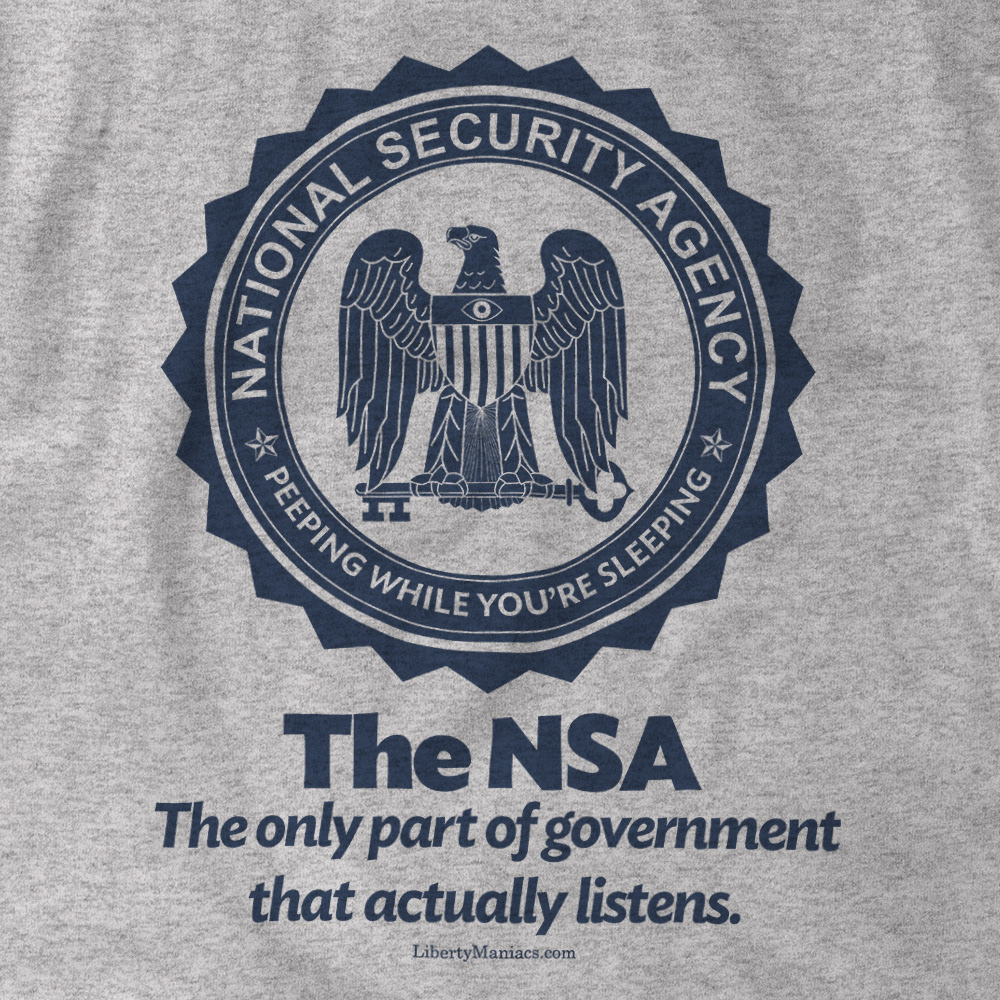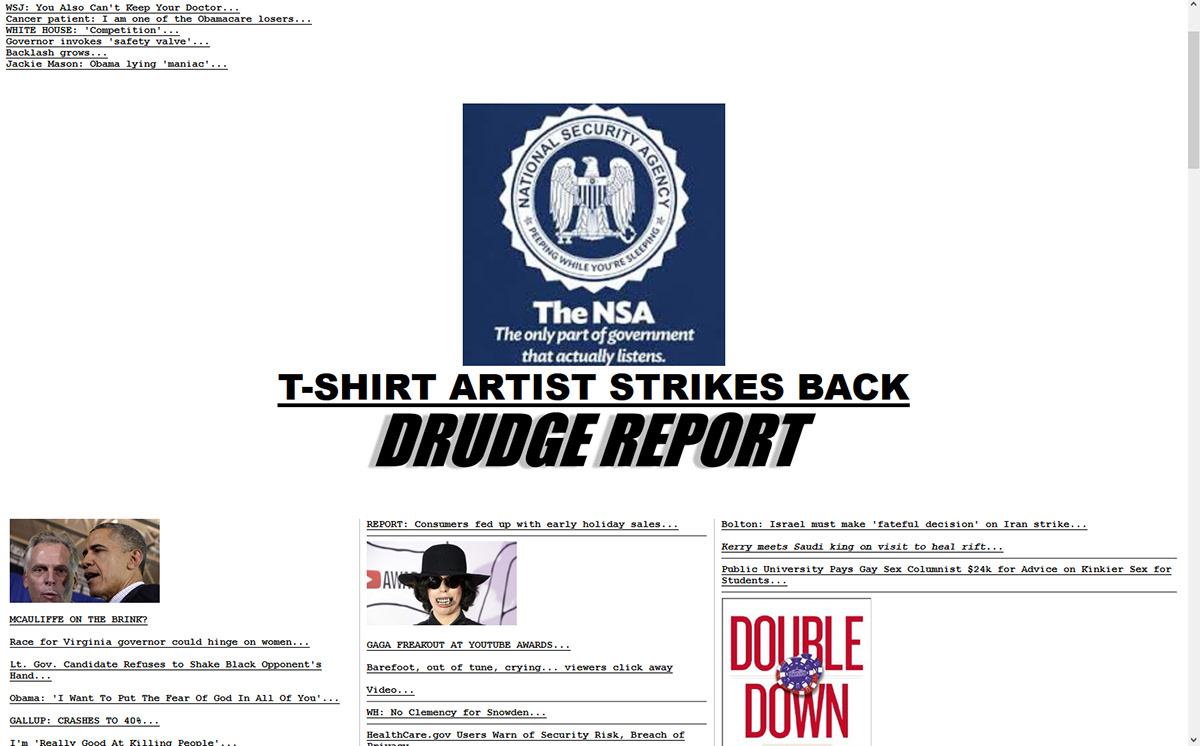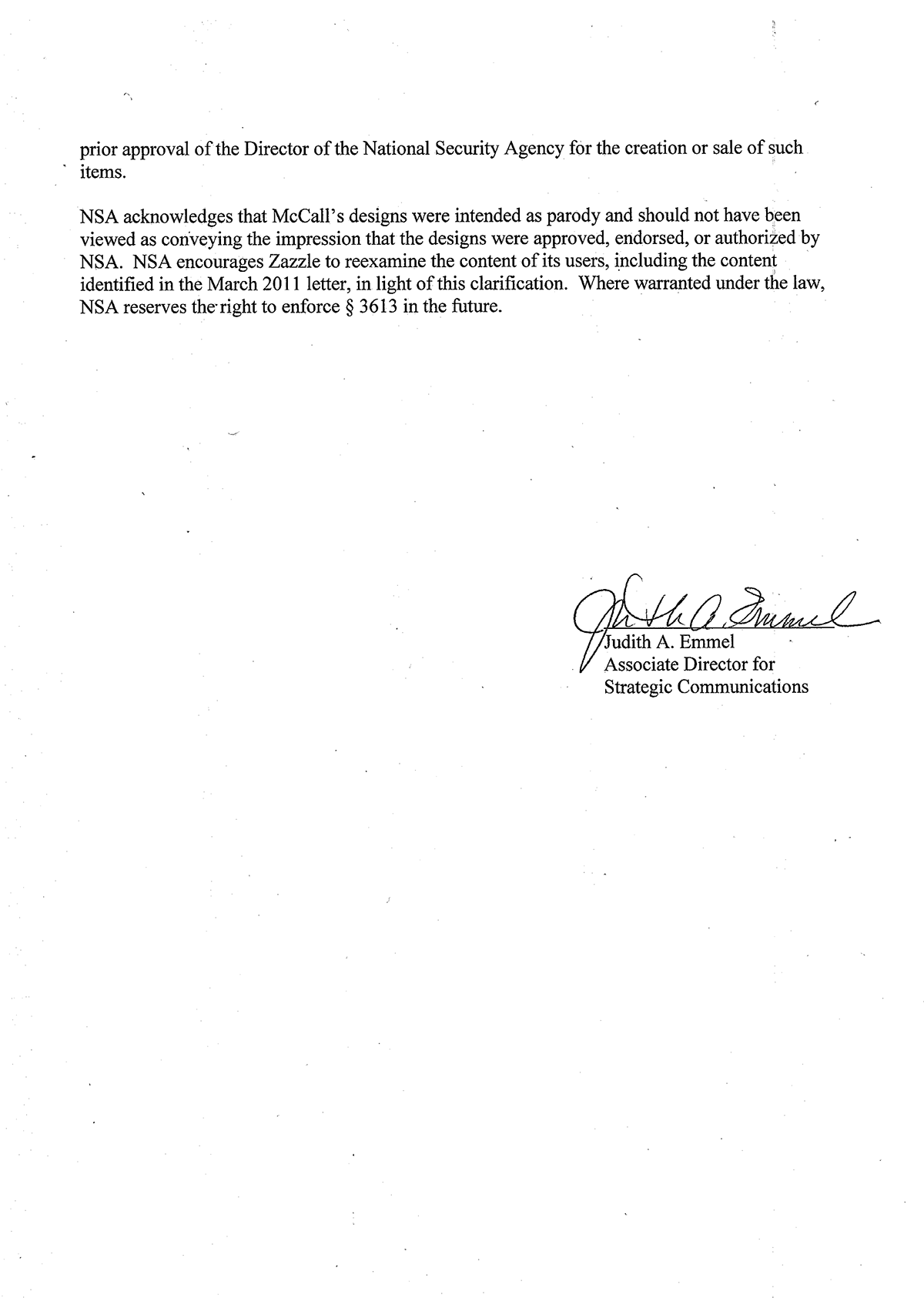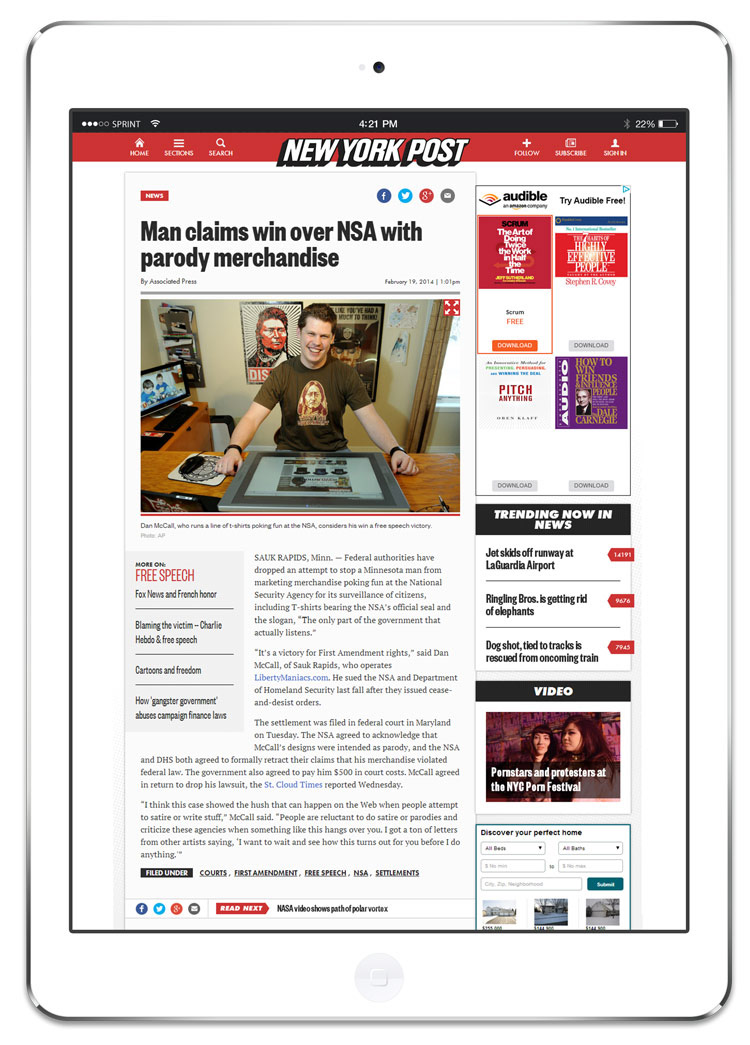
For over two decades, I've been the occasional parodist, which is the weird name we have for a person who does parodies. What's a parody? Well, in short, it's a kind of joke. But it's the kind of like when a comedian does an impression. They're pretending to be someone else for comedic effect. Usually exaggerating and changing things a little bit.
Parodies are "protected speech" in the United States. That means the government isn't supposed to be able to stop you from saying something. It's protected by the Constitution. The legal definition of a parody is "a form of speech protected by the First Amendment as a "distorted imitation" of an original work for the purpose of commenting on it."
Parodies are "protected speech" in the United States. That means the government isn't supposed to be able to stop you from saying something. It's protected by the Constitution. The legal definition of a parody is "a form of speech protected by the First Amendment as a "distorted imitation" of an original work for the purpose of commenting on it."
My work has always focused on people with more power than sense, so inevitably my portfolio is filled with government and politicians. Sometimes those gags are parodies.
In June of 2013, Edward Snowden made news for leaking an incredible quantity of National Security Documents that showed evidence of what many considered not only unethical but unconstitutional behavior. Like other parodists, comedians, humorists, and political cartoonists at the time I was pretty floored. Maybe not surprised because it wasn't the first time we learned that the agency was horsing around with civil liberties. But taken aback at the scope of what I saw.
So off to work I went making a few new jokes and parodies about the situation. I had been doing jabs at the NSA for years, but now I had new material! In fact, the very day the news hit I came up with a line I thought was pretty clever.
"The NSA: The only part of government that actually listens."
Ha! That was it.
In June of 2013, Edward Snowden made news for leaking an incredible quantity of National Security Documents that showed evidence of what many considered not only unethical but unconstitutional behavior. Like other parodists, comedians, humorists, and political cartoonists at the time I was pretty floored. Maybe not surprised because it wasn't the first time we learned that the agency was horsing around with civil liberties. But taken aback at the scope of what I saw.
So off to work I went making a few new jokes and parodies about the situation. I had been doing jabs at the NSA for years, but now I had new material! In fact, the very day the news hit I came up with a line I thought was pretty clever.
"The NSA: The only part of government that actually listens."
Ha! That was it.
Now I'll just do the old parody trick of tweaking their official symbol a bit. Luckily for me, Snoop Dog had recently been on my playlist. I must have been reliving my high school days or something. But it came to me... "Peeping while you're sleeping."
"That's the one, Snoop." I thought. "That's the one, dog."
So, I set up my artwork for print, made my tweaks, shot it off to be featured in my various shops and marketplaces for sale, and moved on. That was pretty much my workflow juggling various projects. After I shot off notifications to fans that was it.
By the end of the day - hours later, actually - I was contacted by one of my marketplace partners, Zazzle. They sent a cryptic, very vague email stating that my NSA parody had to come down because "the copyright holder" made a formal complaint.
What? Copyright holder? I'm the copyright holder! Or, no! They couldn't mean the NSA? Could they?
They did.
Now I had actually been with Zazzle since they were a scrappy Silicon Valley startup. I was proudly their very first Pro Seller who signed with them as the first independent brand to ink a deal 6 years earlier. We had a great relationship. That meant the strange, evasive communications with them were unsettling. Creepy even. It was obvious their legal counsel was saying "say no more!"
After a nauseating back and forth between the company and my attorney, the great Paul Alan Levy, we finally realized that the NSA was trying to put the kibosh on all of my NSA parodies through a cease and desist!
Worse yet, the Department of Homeland Security had also issued a cease and desist for my "Homeland Stupidity Department" parodies. What was going on?
It took some serious lawyering to uncover the problem. But Mr. Levy found out that the NSA's argument for censoring the work was based on a little-known law enacted in the 1950s - Public Law 86-36 - when the agency was created. We're talking Eisenhower Administration here. It stated that any use of the letters NSA, or reference to the agency must be approved personally by the director of the NSA.
Apparently, the NSA was arguing that the parody illegally used their logo and the letters NSA, and they were threatening stiff legal action if I didn't comply with their takedown.
The upshot was clear to me. The NSA believed that this Public Law 86-36 superseded the First Amendment of the United States Constitution.
Sorry, Feds. I don't think so.
I didn't comply.
Instead, I decided to fight them in court. I filed to sue in 2013 on 1st Amendment grounds, and then when the story started to break in the press all hell broke loose.
READ THE COURT FILING"That's the one, Snoop." I thought. "That's the one, dog."
So, I set up my artwork for print, made my tweaks, shot it off to be featured in my various shops and marketplaces for sale, and moved on. That was pretty much my workflow juggling various projects. After I shot off notifications to fans that was it.
By the end of the day - hours later, actually - I was contacted by one of my marketplace partners, Zazzle. They sent a cryptic, very vague email stating that my NSA parody had to come down because "the copyright holder" made a formal complaint.
What? Copyright holder? I'm the copyright holder! Or, no! They couldn't mean the NSA? Could they?
They did.
Now I had actually been with Zazzle since they were a scrappy Silicon Valley startup. I was proudly their very first Pro Seller who signed with them as the first independent brand to ink a deal 6 years earlier. We had a great relationship. That meant the strange, evasive communications with them were unsettling. Creepy even. It was obvious their legal counsel was saying "say no more!"
After a nauseating back and forth between the company and my attorney, the great Paul Alan Levy, we finally realized that the NSA was trying to put the kibosh on all of my NSA parodies through a cease and desist!
Worse yet, the Department of Homeland Security had also issued a cease and desist for my "Homeland Stupidity Department" parodies. What was going on?
It took some serious lawyering to uncover the problem. But Mr. Levy found out that the NSA's argument for censoring the work was based on a little-known law enacted in the 1950s - Public Law 86-36 - when the agency was created. We're talking Eisenhower Administration here. It stated that any use of the letters NSA, or reference to the agency must be approved personally by the director of the NSA.
Apparently, the NSA was arguing that the parody illegally used their logo and the letters NSA, and they were threatening stiff legal action if I didn't comply with their takedown.
The upshot was clear to me. The NSA believed that this Public Law 86-36 superseded the First Amendment of the United States Constitution.
Sorry, Feds. I don't think so.
I didn't comply.
Instead, I decided to fight them in court. I filed to sue in 2013 on 1st Amendment grounds, and then when the story started to break in the press all hell broke loose.
Below is a brief breakdown of the situation as it unfolded.
Alrighty then. I was suing two federal agencies. Oh yeah, and the two largest and most powerful of the 18 Intelligence agencies the United States government has. Not exactly something I ever thought I'd do. But as journalists continued to publish revelations about the Snowden documents, I felt that the agency had simply gone too far here. Heck everyone seemed to. I even got letters of support from NSA analysists telling me they wore the shirt to work under their shirt and tie and plan to until the matter is resolved.
Of course, there's also the fact that the NSA and DHS refused to resolve the issue. The DHS actually piled on, trying to one-up the NSA. DHS stated that they had the right to exercise their authority on the issue to the point of jail time.
Jail? For jokes?
Thankfully just about everyone on Earth thought this was bonkers. From legal scholars to pundits of all ideological backgrounds, people were aghast at the government's strong-arming some dad in Minnesota over a few jokes.
Of course, there's also the fact that the NSA and DHS refused to resolve the issue. The DHS actually piled on, trying to one-up the NSA. DHS stated that they had the right to exercise their authority on the issue to the point of jail time.
Jail? For jokes?
Thankfully just about everyone on Earth thought this was bonkers. From legal scholars to pundits of all ideological backgrounds, people were aghast at the government's strong-arming some dad in Minnesota over a few jokes.

y
I woke up one morning to a friend texting me that I was on the top of the Drudge Report. From then on I experienced something I had never had before. - being at the center of a full on national controversy.

NPR's All Things Considered talks with me about the controversy.
The case McCall v. National Security Agency et al moved forward and all sorts of legal arguments and documents were filed.
In February of 2014, I was notified by my lawyer Paul that the feds were ready to settle. Either the bruising they were taking in the press, or the fact that their own analysts were wearing the shirts may have been the straw that broke the camel's back. It's unclear to this day. We sure as heck know it wasn't because they thought these parodies were free speech.
Now grant you, I wasn't asking for much. All I insisted upon was for the agencies to formally admit that I had the constitutional right to make parodies of them as well as retract their claims that I was in violation of federal law. The only money I asked for was that they pay the filing fees required to take them to Federal Court. $500 or so.
I agreed once they promised to do those three things in writing. They did. So we called it a win.
In February of 2014, I was notified by my lawyer Paul that the feds were ready to settle. Either the bruising they were taking in the press, or the fact that their own analysts were wearing the shirts may have been the straw that broke the camel's back. It's unclear to this day. We sure as heck know it wasn't because they thought these parodies were free speech.
Now grant you, I wasn't asking for much. All I insisted upon was for the agencies to formally admit that I had the constitutional right to make parodies of them as well as retract their claims that I was in violation of federal law. The only money I asked for was that they pay the filing fees required to take them to Federal Court. $500 or so.
I agreed once they promised to do those three things in writing. They did. So we called it a win.
Hurray! It was finally over. I could get back to the business of making stupid jokes about the government again. The well-established, venerable civil right of free speech enshrined in the First Amendment was safe for another day. Legal precedent was set to prove once and for all that people have a legal right to make fun of the government and even politicians running for President.




Get your shirt here.






